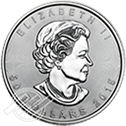What Is a Central Bank Digital Currency (CBDC)?
Central bank digital currency (CBDC) is a digital-based version of money, backed and distributed by a nation’s central bank.
Central banks around the world, including in the U.S., are looking at the future of money and monetary transactions with CBDC in mind.
Many countries are exploring banking alternatives such as central bank digital currency with the aim of:
– Expanding access to funds
– Providing safety and security
– Allowing cost-effective cross-border transactions
Several small countries—mostly in the Caribbean— have already implemented CBDC. Large nations and political unions such as the United States and the European Union (EU) are in the planning phase and still evaluating its viability. China has already launched a pilot program that reaches 260 million people.
Understanding the Role of CBDC
What is CBDC? To answer that, we need to understand how the Federal Reserve—the central bank of the United States—makes money available to the public.
The United States currently has two types of central bank money: the paper notes that you may have in your pocket and digital ledgers of commercial banks that are held by the Federal Reserve.
CBDC would be a third.
You would use your central bank digital currency just like you use your current debit card. But instead of a commercial bank holding your funds, the Federal Reserve would hold them.
CBDC is a digital representation of a country’s fiat currency and will probably not replace paper currency.
It should not be seen as a substitute for tangible assets such as the precious metal coins and bars held in a Gold IRA and a Silver IRA.
How CBDC Works
You probably already have digital currency and use it every day. Your bank account is digital. Your Venmo, Cash App, and PayPal accounts are digital. Any online transaction is completed using digital currency.
In most cases, you store your funds at a commercial bank. When you buy something with your card or use a payment system online, the money is digitally debited from your bank account. Simple, safe, and easy.
CBDC would not change your transaction process. The Federal Reserve would simply become the storer of your funds.
- You would use a debit card issued by the Fed.
- Your account would be accessible by an app, allowing you to use your phone to transact.
- Your spending liabilities would be paid through the Federal Reserve’s system instead of through your current bank or credit union.
The Difference Between Central Bank Digital Currency and Cryptocurrency
Most have heard of cryptocurrencies built on blockchain technology—the most famous being Bitcoin..
Blockchain is a digital ledger containing a chronological chain of information. Data is held in blocks, and all the blocks, strung together, make the chain.
The blocks are distributed across all parties in a transaction, and all parties must agree on changes to any block. This accountability helps protect blockchain transactions from hacking and unauthorized alterations.
Central bank digital currency is also built on the blockchain, but its functions and purposes are very different from cryptocurrency.
It is important to remember that CBDC currency is not a cryptocurrency.
Let’s compare CBDC vs. cryptocurrency:
- CBDC operates a private centralized blockchain. Crypto uses a public decentralized network.
- Crypto transactions are anonymous. CBDC transactions are linked to bank accounts and include a plethora of personal information.
- CBDC value is based on official fiat currency. Crypto value is based on the market cap of the instrument.
- Crypto is used for payments and speculation. CBDC is used for payments and financial transactions.
Advantages and Challenges of CBDC
Benjamin Franklin famously listed pros and cons when he evaluated difficult propositions.
Central banks around the world are probably doing the same as they evaluate CBDC currency. These banks must critically scrutinize and meticulously plan each element.
Pros
Advantages of Central bank digital currency include:
- Wider access to banking
- Financial inclusion
- Reduced costs of handling cash
- Helps eliminate counterfeiting
- Allows central banks to control money supply, fight inflation, and stabilize the economy
Cons
Some of the disadvantages of CBDC are:
- Risk of banking industry instability by eliminating the need for intermediaries
- Lack of privacy
- Cost of implementing new technology and infrastructure
- Potential runs on banks
- Need for new regulations and legal policies
The Future of CBDC and Potential Implications
The long-term viability of CBDC is still undetermined.
One thing is certain, though: Central banks are exploring digital financial options that put them more at the center of monetary transactions.
The potential implementation of digital currency that virtually eliminates privacy and carries your digital footprint has many investors concerned.
Your personal information floating with every swipe of your card may be the most alarming feature of central bank digital currency.
The answer for those investors may be the precious metals IRA.
This self-directed individual retirement account puts the control back in your hands. You make the decisions. You hold real, physical, gold, and/or silver as the tangible foundation of your portfolio.
If you are 59½ and have a 401(k) or still own a 401(k) from a previous employer, an IRA rollover into physical precious metals may be right for you.
Contact the professionals at Advantage Gold. Our experienced account executives will educate you and walk you through the simple Gold IRA application process.
Call us today, or click the link and let us know how to contact you.
While the rest of the world goes virtual, Advantage Gold will help you keep it real.
When it’s real, it can’t disappear at the push of a button.
Tags: cbdc, cbdc currency, cbdc vs cryptocurrency, what is cbdc


